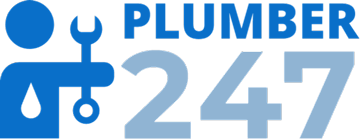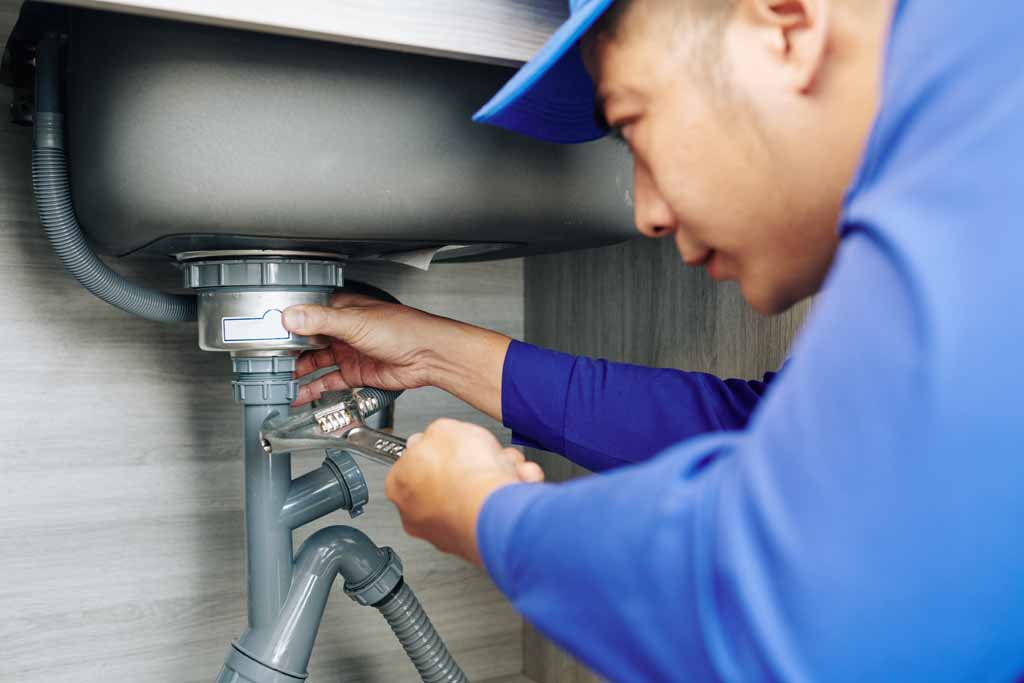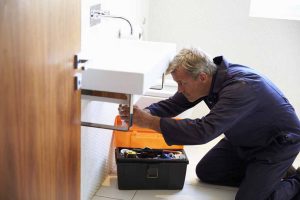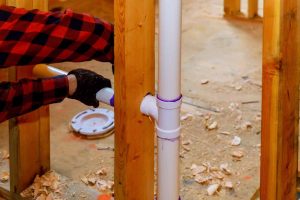Plumbing problems are not only an inconvenience; they can also be dangerous. We don’t always know when our plumbing has a problem or when it will strike next.
If you have a leak or flooding under your sink, this can quickly become a severe issue if left unchecked. The good news is that there are many ways to prevent and handle minor plumbing issues before they become significant. The service can be performed by a plumbing repair near me at any time.
Plumbing Problems In The Rainy Season
Even the most well-maintained toilet can overflow in a flash. And if you’re dealing with an overflowing bathroom, you’ll want to get your hands on some helpful tips and tools. Here’s what you should do to clean up after an overflow and prevent it from happening again in the future:
- Shut off the water supply valve leading into your home.
- Remove excess water from your home using a wet/dry vacuum or shop vac.
- Next, use some disinfectant wipes or other cleaning products to wipe down all surfaces exposed to wastewater — especially those near where wastewater left behind may have soaked into carpeting, tile floors, and other parts of your home.
Once you’ve removed all the material, flush with hot water to clear any remaining debris. If you still have a clog, try using an auger tool again—this time, making sure it reaches down into your pipes and removes any blockage in its path.
If you have a septic tank, you must contact your local health department for specific instructions about cleaning up after an overflow. You may also want to get in touch with a professional plumber or drain cleaner who can check out the plumbing system and ensure there aren’t any other areas of concern.
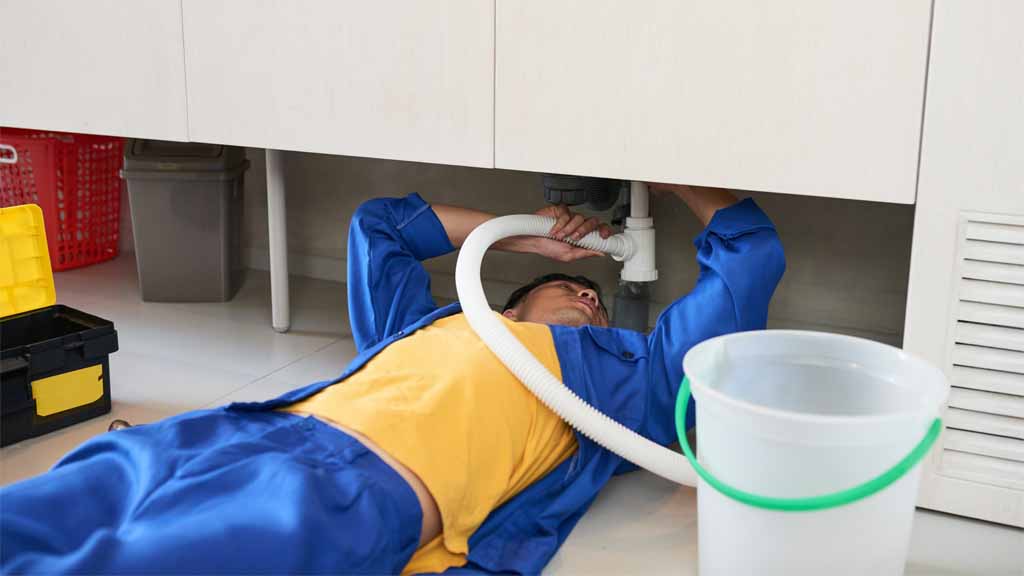
Pipe Repair
Plumbing problems such as clogged drains are common. A plumber must repair a blocked drain, but you can also unclog it with some household items.
- Check if any objects are stuck in your sink or shower drains by pouring ½ cup baking soda down each and flush with hot water. If the blockage is a solid object, you should be able to flush it out with this method.
- If not, use an auger tool to remove blockages from the pipes—you can find these at hardware stores and home improvement centers like Lowe’s or Home Depot for about $10-$20 each (depending on length).
- Insert one end into your drain opening and attach it tightly by turning clockwise until you feel resistance. Slowly pull back as far as possible before releasing pressure on the handle so that it expands inside pipe walls without causing damage or breaking off any pieces near.
- Where you inserted them until all resistance has disappeared. Nothing else comes up originally placed inside before starting again from the beginning material has been removed successfully.
ADD CTA HERE
A leaky faucet can be a significant headache. It’s essential to fix the leak quickly so that water doesn’t continue to drip into your home and cause damage. If your faucet is dripping, turn off the water supply to the sink or toilet.
If you have a septic tank, you must contact your local health department for specific instructions about cleaning up after an overflow. You may also want to get in touch with a professional plumber or drain cleaner who can check out the plumbing system and ensure there aren’t any other areas of concern.
Drainage Problems
Plumbing problems can be stressful. When dealing with a leak or other plumbing issue, you want to find a solution as soon as possible. If your drain is clogged, it’s essential to call an expert plumber to avoid flooding and other problems.
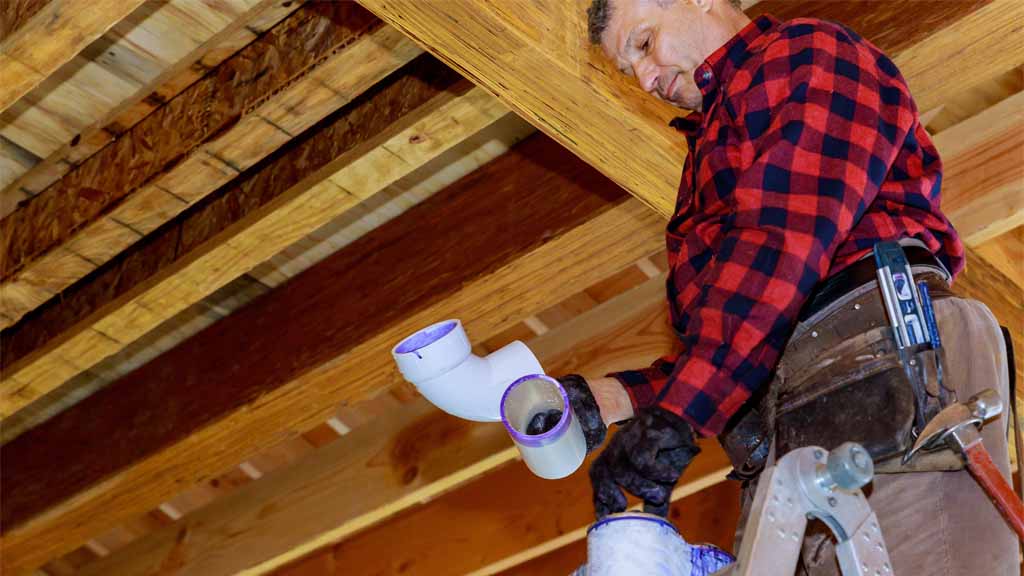
If you’ve noticed any of the following issues around your home, it’s time to call a plumber:
- A sudden drop in water pressure
- Water coming out of the sink differently than usual
- A leak under the sink or toilet
And the blockage has been cleared. If this does not work, you may need to call a professional plumber for further assistance. The faucet will need a new washer or O-ring. If unsure which is leaking, take off the handle and look inside the seals.
The leak may be coming from a worn seal rather than from a faulty cartridge or spout.s also vital to disinfect areas where wastewater left behind may have soaked into carpeting, tile floors, and other parts of your home. A disinfectant wipe or spray that kills germs on surfaces like these is a good idea.
There are many reasons why this can happen, including plumbing problems. The smell may indicate that something is clogged or backed up, and you need to call a plumber immediately.
In some cases, it’s just a matter of removing the drain stopper and cleaning out hair or debris accumulated in the pipes below. If you’re unsure what anode rods are or how to replace them, we recommend contacting a professional for help. This will ensure your family’s safety and prevent further damage from occurring.
Damaged Or Malfunctioning
As the weather turns humid, you must keep an eye on your basement. You may have installed a sump pump in your home for a reason: to pump water out of your basement and prevent flooding. If this is not working correctly, or if there is another problem, then it’s time to call a plumber.
Sump pumps work to keep water from accumulating in basements by pumping water structures through a discharge pipe outside the house. The system consists of a submersible motor and pump assembly mounted below grade level in an access pit called a “sump.”
It is connected via PVC piping up into the house, connecting directly into your main drainage line (like an overflow pipe) so that any excess groundwater is automatically expelled via gravity outside instead of inside, where it could damage walls/flooring/piping.
ADD CTA HERE
A foul smell is coming from the sink or toilet.
If this does not work, pour some boiling water down the drain, followed by a cup of vinegar, and let it sit for about 30 minutes before flushing again with hot water.
If you’re unsure what anode rods are or how to replace them, we recommend contacting a professional for help. This will ensure your family’s safety and prevent further damage from occurring.” If you notice a terrible smell coming from your sink or toilet, chances are that something has gotten caught in the drain.
Try pouring some boiling water down the drain, followed by a cup of vinegar, and let it sit for about 30 minutes before flushing again with hot water. If this does not work, call in a plumber immediately because there may be an obstruction blocking the flow of water out of your pipes, which could cause flooding if left untreated.
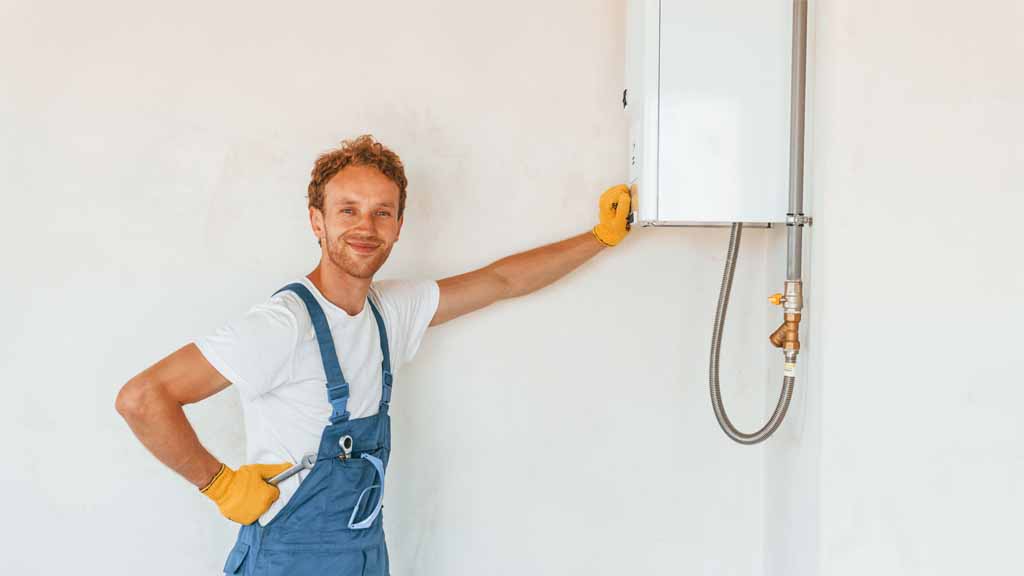
Water Heater Issues
If your water heater is leaking, you’re in for some trouble. Leaking water heaters can prove to be very costly to fix and can cause damage to your home.
To deal with this issue, first, turn off the power supply to the water heater by flipping off its circuit breaker or removing it from its plug. Then, use a flashlight to inspect around the bottom of your tank for any cracks or leaks before taking it out of the wall (you should always unplug appliances before touching them).
If no visible damage exists on top of the tank, we recommend using a screwdriver to remove its cover plate so you can access its components.
If no visible damage exists underneath, try replacing its anode rod (the metal rod inside) as this could be causing corrosion within these parts, leading to cracks forming later down that road.
If there are visible cracks in the tank, we recommend replacing it with a new one as soon as possible. The sooner you replace your water heater. The least damage will occur to your home from water leakage—leaking water heaters can cause mold growth and higher electricity bills if left unfixed for too long.
Tips For Avoiding Plumbing Problems
You can avoid plumbing problems by following a few simple tips:
- To unclog a kitchen sink, you should first try plunging the drain with a toilet plunger. If that doesn’t work, use a drill to remove any blockages from the drain. If all else fails and your sink is still clogged, you may need to call in the plumber.
- To unclog a shower or bathtub drain, try plunging it with a toilet plunger that will clear most blockages in your drain. If this does not work, use a drill to remove any hair or debris blocking your gutters. Next, pour some bleach down the drain, followed by water, and let everything settle for 30 minutes before flushing again with hot water (not boiling). Once more, if this does not work, it’s time to call that professional plumber.
- To unclog kitchen sinks: Try using baking soda and vinegar together because they dissolve grease very well before trying anything else like chemical products, etc.
- This method works exceptionally well if there has been old food left inside of them overnight while cooking dinner without cleaning up afterward – usually causing those nasty odors we all hate so much.
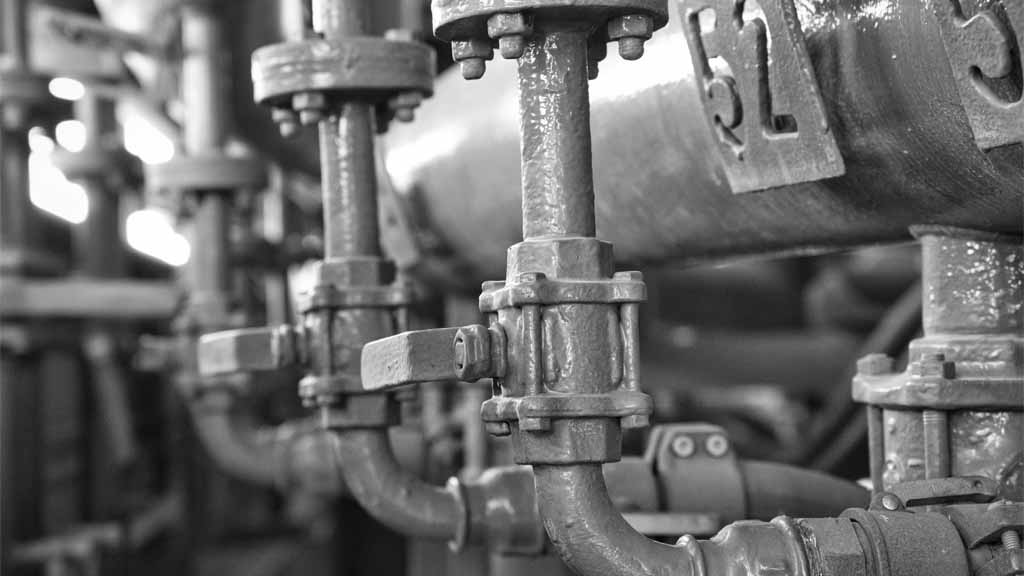
Plumber On Standby Ready To Help You
When you need a plumber, you never know when the problem will strike. Accidents happen at all times of day and night. Some plumbing issues can be fixed by yourself, but others require professional assistance from a licensed plumber.
It is not enough to call your local hardware store and ask them to send someone over; you want someone who has experience solving these problems and can take care of them immediately.
The last thing you want is for your pipes to burst while it’s raining outside—or worse yet, while everyone is asleep.
It would be best if you always had a professional on standby ready to help with any plumbing repairs near me in the rainy season so that you don’t have any problems later down the road ignored for too long now.
Do not call anyone else out there until you have experienced them first-hand.
Most people are working during those hours only because we know how hard it must be being an entrepreneur nowadays trying hard. If you have a sump pump and it’s not working correctly, you need to get someone out there as soon as possible to fix it. If your basement is flooding, this emergency requires immediate attention.
If you have tried all these methods and cannot unclog your drain, then it may be time to call in a professional.n you find that there is damage to your water heater, we recommend getting it repaired as soon as possible. While waiting for the repairman to arrive, turn off all power sources to your unit and remove any flammable materials from its vicinity such as lint or towels.
If you have a problem with your sink leaking, then try tightening the screws on the drain cover. If this does not work, use a drill to remove any blockages from the drain. If all else fails and your sink is still clogged, you may need to call in the plumber.
To unclog a shower or bathtub drain, try plunging it with a toilet plunger that will clear most blockages in your drain. If this does not work, use a drill to remove any hair or debris blocking your gutters.
Next, pour some bleach down the drain, followed by water, and let everything settle for 30 minutes before flushing again with hot water.
Once more, if this does not work, but if you want to be able to call someone out there who will give you a fair price on the job and do it right away, then I’m that guy.
Conclusion
Plumbing problems can be a headache, especially during the rainy season. However, you can use some easy tips to avoid them altogether. Ensure that your sump pump is in good working condition by having it inspected once per year by a professional plumber.
Also, check your water heater regularly and ensure the installation is done according to the manufacturer’s specifications. Call an emergency plumber immediately if you notice any leaks or drips in your home. Lastly, if you have any plumbing issues, don’t wait until tomorrow because tomorrow may never come.
